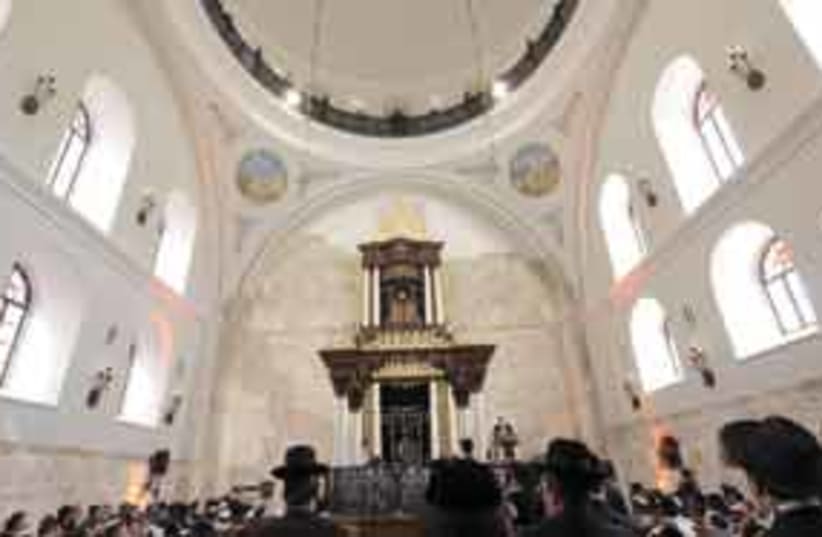Liberating the Hurva
Tourists and local activists are bemoaning the fact that the Hurva Synagogue has become a kollel with limited access for visitors. Haredim claim a compromise can be reached but that the yeshiva students must be allowed to study in peace. A guided tour of the newly reopened site – by appointment only.
